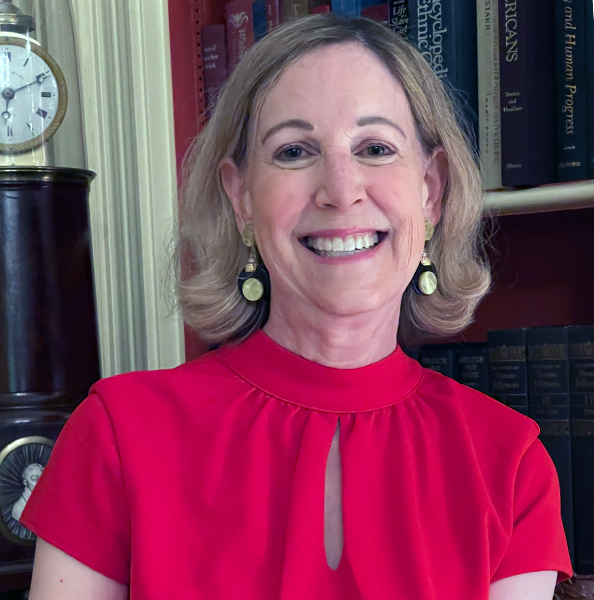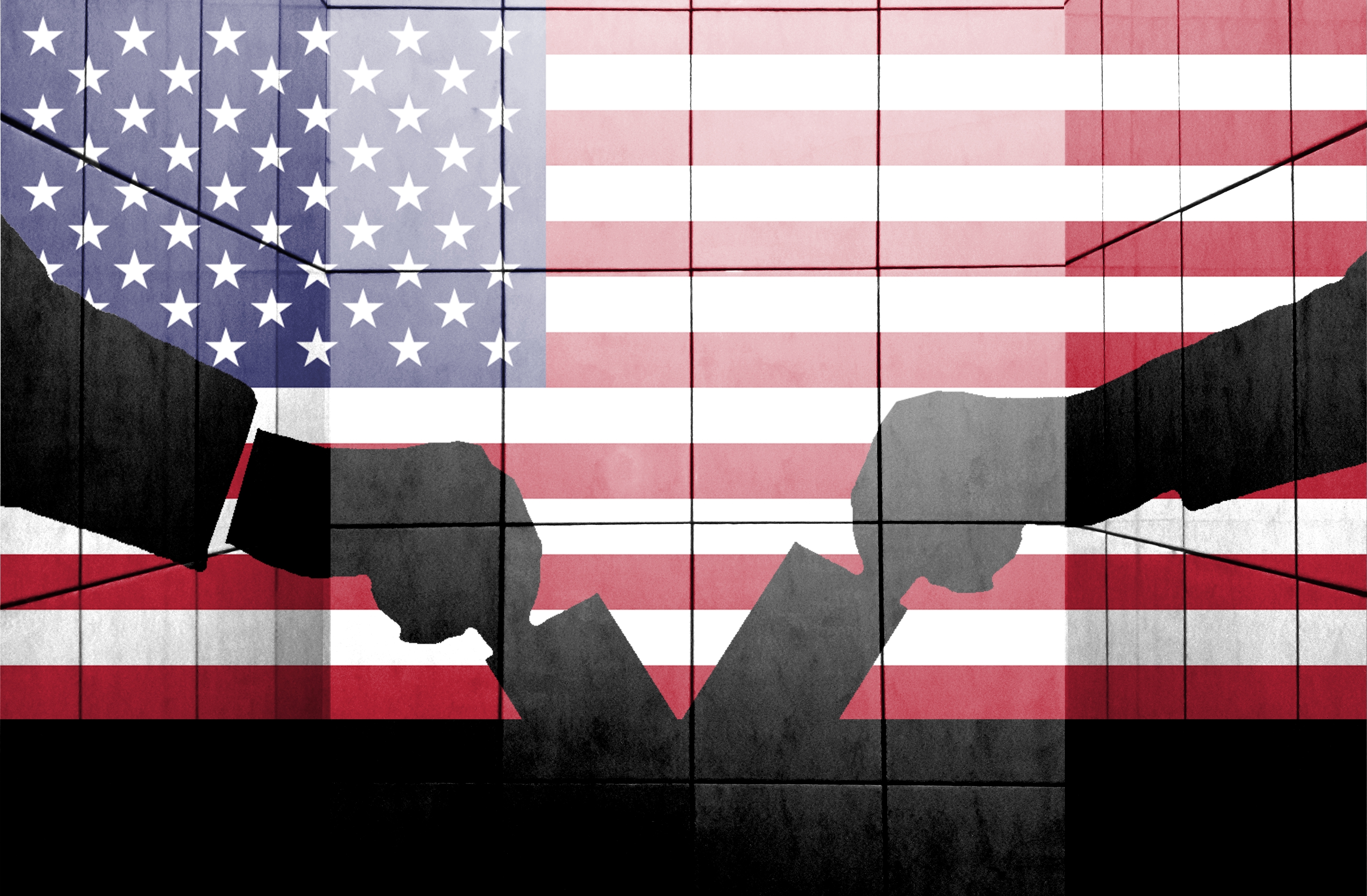How to Win a Presidential Debate (or At Least Not Lose One)
 Barbara A. Perry is Gerald L. Baliles Professor in Presidential Studies and Co-Chair of the Presidential Oral History Program at the University of Virginia’s Miller Center.
Barbara A. Perry is Gerald L. Baliles Professor in Presidential Studies and Co-Chair of the Presidential Oral History Program at the University of Virginia’s Miller Center.
Joe Biden and Donald Trump had agreed to two presidential debates, but, with the incumbent president’s exit from the race (in part, due to a poor showing in last month’s contest), it remains to be seen if Trump will choose to go toe to toe on a stage with the new Democratic standard-bearer.
The first 2024 debate and its preceding history (some of which UVA’s Miller Center has gleaned from its interviews with presidents and their advisors) provide a host of practical preparation and performance lessons that candidates would be wise to adopt in the future.
Lesson 1: Rehearse. It seems logical that a candidate would, but incumbent presidents are sometimes reluctant to take time away from their White House duties to practice lines they’ve been using for years. As presidential advisor Richard Darman told the Miller Center in his oral history interview, Ronald Reagan “was perhaps more comfortable with the idea of rehearsal and the process of being managed than President [George H.W.] Bush.” Trump claimed he needed no practice rounds for 2024’s debates, and his experience as a reality TV star may have adequately prepared him.
Lesson 2: Don’t cram. Maybe Reagan, a Hollywood actor, felt comfortable in practicing for his performance on the debate stage, but his wife, First Lady Nancy Reagan, blamed staffers, including Darman, for producing “the worst night of Ronnie’s political career” in the first 1984 debate by making him “tense, muddled, and off-stride. He lacked authority. He stumbled.” The president, known as “The Great Communicator,” agreed, recording in his diary that he’d “crammed so hard on facts and figures” to counter his opponent, former Vice President Walter Mondale, that he “flattened out.” Even worse for his image, the press asked whether Reagan, then the oldest American president (73), could serve a second term. President Biden’s first outing with Trump in June 2024 produced the same flat and muddled results, along with questions about his octogenarian status, which ultimately forced him from the race.

Lesson 3: Powder your nose. Vice President Richard Nixon famously refused cosmetics for the first televised presidential debate with Senator John Kennedy in 1960, and, suffering from an infection, Nixon appeared pale and fevered, with a five-o’clock shadow. JFK, despite his painful back, looked tanned and relaxed. As the two eldest presidential candidates in American history, Trump (78) and Biden (81) faced the ravages of time with combovers, spray tans, and hair plugs. Make-up should accentuate the positive and eliminate the negative. A less clownish look should be the sweet spot for appearing before high-definition cameras. Or, as Coco Chanel advised women, “put on lipstick and attack.”
Lesson 4: Stay in your lane. Vice President Al Gore in 2000 did himself no favors by invading the personal space of his opponent, Governor George W. Bush, during their town hall debate. In rehearsals with Bush, Congressman Rob Portman, playing Gore, suddenly walked toward the Texas governor. “What are you doing? He’d never do anything like that. [H]e’s not that big of a doofus,” Bush exclaimed, according to Josh Bolten in his Miller Center oral history. Portman countered that Gore “likes to use his size to physically intimidate somebody he is debating with.” When Gore pulled the stunt, an unflappable Bush simply looked bemused and continued his comments. Trump repeated this tactic against Hillary Clinton in a 2016 debate, and she later wished she had taken him to task for it on live television.
Lesson 5: Have your winning lines ready. Reagan pulled no punches in the last debate with President Jimmy Carter, whose approval ratings were tanking in 1980 owing to a severe recession, high interest rates, and the Iranian hostage crisis. The California governor simply looked into the camera and queried the American people, “Are you better off today than you were four years ago?” By a landslide for Reagan, voters answered with a resounding “No!” Biden and Trump fired few memorable salvos at their opponent in the first debate. The president saved his for the next day’s North Carolina rally: “Folks, I don’t walk as easy as I used to. I don’t speak as smoothly as I used to. I don’t debate as well as I used to, but . . . I know how to tell the truth. I know right from wrong, and I know how to do this job!” It was too little, too late.
Lesson 6: Use humor. Reagan prepared a counter to his failed first debate in 1984 with a quip rehearsed for his second contest with Mondale. Parried the septuagenarian president, “I will not make age an issue in this campaign. I am not going to exploit, for political purposes, my opponent’s youth and inexperience.” Although Mondale was 56 and had served as a state attorney general, U.S. senator, and vice president, he had no retort to Reagan’s joke and simply laughed along with the audience. Like Carter, Mondale suffered a landslide defeat to “The Gipper” (Reagan’s heroic character in the 1940 film Knute Rokne: All American).
Lesson 7: Avoid creating comedic fodder. It’s one thing to crack jokes; it’s quite another to be the object of them. A seemingly innocuous word or phrase can land in late-night monologues or Saturday Night Live skits. Al Gore mentioned several times in 2000’s debates that he would preserve Social Security in a metaphorical “lockbox.” Impersonating Gore’s Tennessee twang and ponderous tone, SNL’s Darrell Hammond quickly turned the word into a national punch line. Immediately after the Biden v. Trump contest, comedian Jon Stewart launched a hilarious rant, demanding, “Both of these men should be using performance-enhancing drugs!”

Lesson 8: Be empathetic. Governor Bill Clinton’s frequent comment to voters, “I feel your pain,” became risible. Yet Clinton’s understanding response about the economic downturn to an audience member in the 1992 town hall seemed genuine. Conversely, cameras captured President Bush, the 41st President, glancing at his watch during the debate. Bush advisor Phillip Brady explained to the Miller Center that the president was actually hoping that the moderator would enforce the time limits on third-party candidate Ross Perot, who tended to ramble. It was too late for Bush, who lost to Clinton, in part because of the votes Perot captured.
Lesson 9: Don’t misspeak. The original 2024 candidates were well known for verbal bobbles, which were on full display in their first debate. President Trump turns his mispronunciations into laugh lines on the stump. Voters can accept minor gaffes, but, at least in a bygone era, woe to the candidate who uttered an inaccuracy, as President Gerald Ford did in 1976 when he declared in a debate with Carter, “There is no Soviet domination of Eastern Europe.” Cold War realities made the statement utterly false and probably contributed to Ford’s narrow loss to the Georgia governor. Candidates can overcome a malaprop or minor non-fluency, but multiple prevarications or inability to complete a thought can be fatal.
Lesson 10: Bounce back. While Ford’s misstatement cast a pall on his candidacy, some candidates have bounced back from a poor showing in subsequent debates. After Mrs. Reagan’s command that her husband’s advisors “Let Ronnie be Ronnie,” in 1984, they did, he was, and Reagan won a second term. President Barack Obama had a surprisingly ineffective first debate with Governor Mitt Romney, a talented public speaker, in the 2012 election, but rhetorically gifted Obama regained his footing and handily defeated Romney in subsequent debates and for reelection. Even George W. Bush, famous for his non-sequiturs and turning in two poor 2004 debates against John Kerry, gave an adequate showing in debate #3 and ultimately emerged victorious for a second term.
Social media and Trump’s reality TV roots have upended many political performance rules. Should he win a second term by continuing to ignore the lessons of past debates and campaigns, these standard guidelines may be added to the other recently scrapped precedents of presidential history, along with the debate format itself.
- A Revolution in the Air: The Wright Brothers Take to the Sky on December 17, 1903
- Musings on National Violin Day
- Making the Promise Real: How a UN Tax Convention Can Fulfill the UNDHR’s Vision
- Maximizing Your Impact with Planned Giving
- UVA Club of Middle Tennessee: UVA vs Ohio State Pre-Game Social
- UVA Club of Greater Orlando: UVA vs. Stetson Baseball Pre-Game Celebration